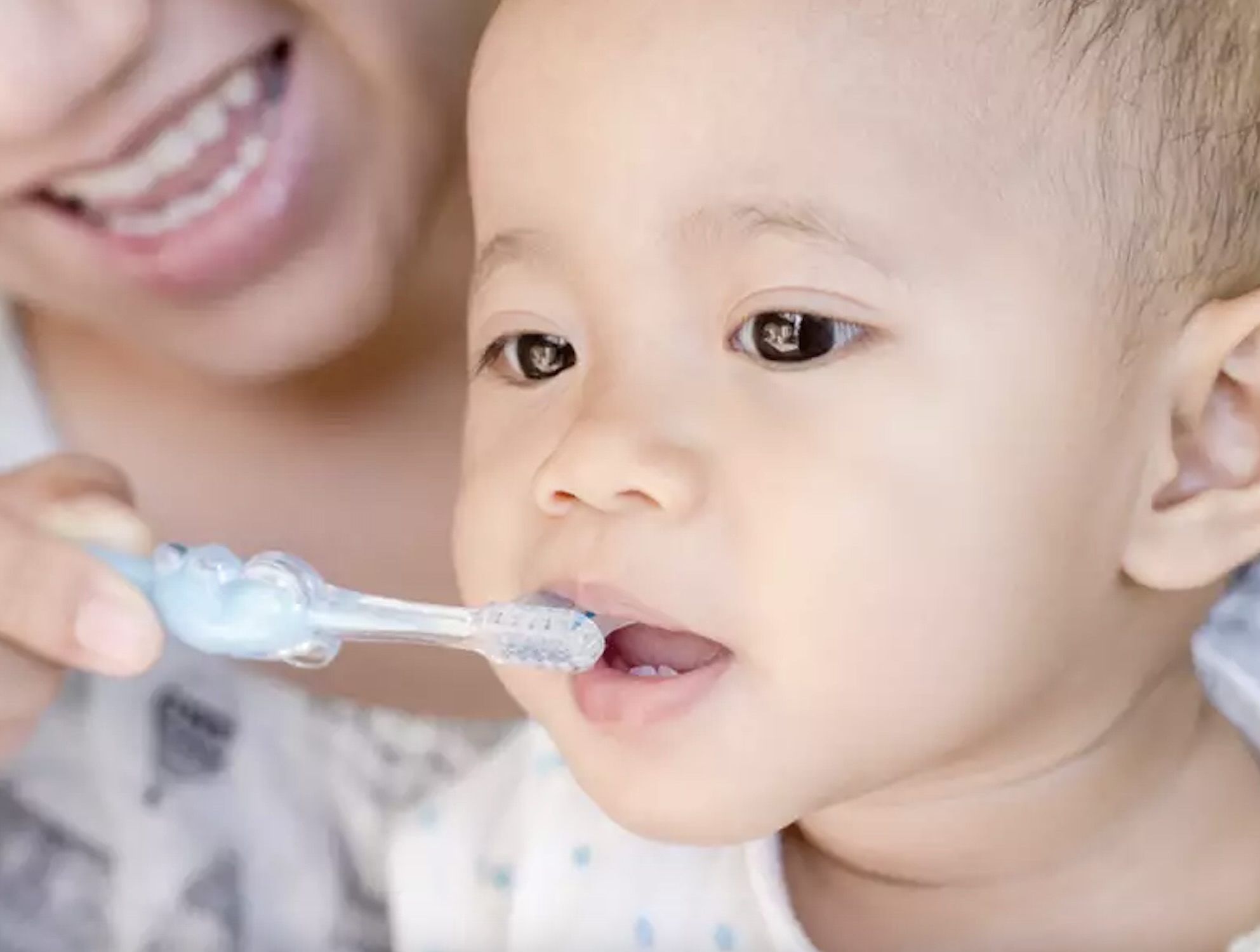Caring for Your Baby’s Teeth
At what age do children get their baby teeth?
Children typically begin teething around 6 months of age, although the timing can vary. Most children will have their full set of 20 primary teeth, also known as baby teeth or deciduous teeth, by the age of 3. Teething can be a challenging time for both infants and parents, as it can be accompanied by symptoms such as irritability, drooling, and gum discomfort. Providing a teething baby with age-appropriate teething toys or gently massaging the gums with a clean finger can help alleviate discomfort.
How do you can for your baby’s gums?
Caring for your baby’s gums is important for their oral health, especially before their teeth have erupted. Here are some tips for caring for your baby’s gums:
1. Clean their gums: After feeding, gently wipe your baby’s gums with a clean, damp cloth or gauze pad. This helps remove bacteria and food particles.
2. Use a soft, silicone finger brush: As your baby’s teeth begin to erupt, typically around 6 months of age, you can start using a soft, silicone finger brush to gently clean their teeth and gums. Use a small amount of water and brush in a circular motion.
3. Avoid using toothpaste: Until your child is old enough to spit out toothpaste (around age 2-3), it’s best to avoid using toothpaste. Water is sufficient for cleaning their teeth and gums.
4. Be gentle: Always be gentle when cleaning your baby’s gums and teeth to avoid causing discomfort or injury.
5. Establish a routine: Get into the habit of cleaning your baby’s gums after each feeding to help prevent the buildup of bacteria.
6. Visit the dentist: The American Academy of Pediatric Dentistry recommends that children see a dentist by their first birthday or within 6 months of their first tooth erupting. A dentist can provide guidance on caring for your child’s teeth and gums and monitor their oral health as they grow.
Caring for your baby’s gums sets the stage for good oral hygiene habits as they grow and their teeth come in.
How do you care for your baby’s gums?
Caring for your baby’s teeth is important for their oral health. Here are some tips for caring for your baby’s teeth:
- Start early: Begin cleaning your baby’s teeth as soon as they come in. Use a soft, infant-sized toothbrush and water to gently clean their teeth and gums.
- Use a tiny amount of fluoride toothpaste: Once your child is old enough to spit out toothpaste (around age 2-3), you can start using a tiny amount of fluoride toothpaste, about the size of a grain of rice. Use a soft, small-headed toothbrush and brush their teeth twice a day, making sure to reach all surfaces of the teeth.
- Supervise brushing: Until your child is old enough to brush their teeth effectively on their own (around age 6-8), it’s important to supervise their brushing to ensure they are doing a thorough job.
- Limit sugary foods and drinks: Sugary foods and drinks can contribute to tooth decay. Limit your child’s intake of sugary snacks and beverages, and encourage them to drink water.
- Encourage healthy eating habits: A balanced diet that includes plenty of fruits, vegetables, and whole grains can help support good oral health.
- Schedule regular dental check-ups: The American Academy of Pediatric Dentistry recommends that children see a dentist by their first birthday or within 6 months of their first tooth erupting. Regular dental check-ups can help prevent and detect any dental issues early.
- Avoid putting your baby to bed with a bottle: Milk or juice left in the mouth overnight can lead to tooth decay. If you must give your baby a bottle at bedtime, fill it with water instead.
- Use a clean pacifier: If your child uses a pacifier, make sure it is clean and don’t dip it in sugar or honey.
By following these tips, you can help ensure that your baby develops healthy oral hygiene habits that will last a lifetime.
How do I prevent my baby from getting cavities?
Preventing cavities in babies involves establishing good oral hygiene habits and making healthy choices for their dental health. Here are some tips to help prevent cavities in your baby:
- Clean your baby’s gums: Before your baby’s teeth come in, gently wipe their gums with a clean, damp cloth after feedings to remove bacteria and sugars.
- Brush your baby’s teeth: Once your baby’s teeth begin to come in, use a soft, infant-sized toothbrush and a tiny amount of fluoride toothpaste (about the size of a grain of rice) to brush their teeth twice a day. As your baby gets older and more teeth come in, you can increase the amount of toothpaste to a pea-sized amount.
- Limit sugary foods and drinks: Sugary snacks and beverages can contribute to tooth decay. Limit your baby’s intake of sugary foods and drinks, and encourage them to drink water.
- Avoid putting your baby to bed with a bottle: Milk or juice left in the mouth overnight can lead to tooth decay. If you must give your baby a bottle at bedtime, fill it with water instead.
- Schedule regular dental check-ups: The American Academy of Pediatric Dentistry recommends that children see a dentist by their first birthday or within 6 months of their first tooth erupting. Regular dental check-ups can help prevent and detect any dental issues early.
- Use a clean pacifier: If your baby uses a pacifier, make sure it is clean and don’t dip it in sugar or honey.
- Encourage healthy eating habits: A balanced diet that includes plenty of fruits, vegetables, and whole grains can help support good oral health.
By following these tips and establishing good oral hygiene habits early on, you can help prevent cavities and promote healthy teeth and gums for your baby.




